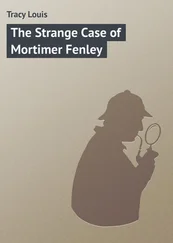82. United States General Accounting Office: Economic Restructuring and Donor Assistance, Washington, D.C.: GAO, August 1995, pp. 57-8.
83. Ibid., p. 58.
84. For details of pending privatization plans for LOT, see “LOT na Gielde,” Rzeczpospolita, June 30, 2000. Abstracted in World Reporter. (Obtained through Dow Jones Interactive.)
85. United States General Accounting Office, Poland: Ecomonic Restructuting and Donor Assistance, Washington, D.C., GAO, August 1995, p. 6.
86. Data provided by Grzegorz Kołodko, former first deputy prime minister and minister of finance of Poland (letter from Grzegorz Kołodko, June 20, 2000, and conversations of August 1998). See also Grzegorz Kołodko , From Shock to Therapy: The Political Economy of Postsocialist Transformation, Oxford and New York: Oxford University Press, 2000; and Mario Nuti, Mass Privatisation: Costs and Benefits of Instant Capitalism, London, United Kingdom: CIS—Middle Europe Centre, London Business School, Discussion Paper Series, no. 9, May 1994, p. 15.
87. There is a considerable body of work on how “planned economies” actually worked in practice. Political sociologist Claus Offe, for example, who calls planned economies a “misleading euphemism,” writes: “These were admittedly economies in which there was planning; but precisely for that reason they were economies which did not function according to plan, but were instead susceptible (and vulnerable) to unpleasant surprises ‘from below’—to the friction that resulted from the fact that it was not possible to coordinate actions ‘on site’ effectively or discipline them sufficiently.” (Claus Offe, Varieties of Transition: The East European and East German Experience, Cambridge, MA: MIT Press, 1997, p. 5.)
88. John W. Bennett, “Anthropology and Development: The Ambiguous Engagement,” Production and Autonomy: Anthropological Studies and Critiques of Development, John W. Bennett and John R. Bowen, eds., Lanham, MD: University Press of America, 1988, p. 16.
89. James Millar, From Utopian Socialism to Utopian Capitalism: The Failure of Revolution and Reform in Post-Soviet Russia, Washington, D.C., The George Washington University: 175th Anniversary Papers, 1996, Paper 2, p. 13.
90. Mark Hobart, “Introduction: The Growth of Ignorance?” An Anthropological Critique of Development, Mark Hobart, ed., London, United Kingdom: Routledge, 1993, p. 16.
91. See, for example, Yudit Kiss, “Privatization Paradoxes in East Central Europe,” East European Politics and Society, vol. 8, no. 1, winter, 1994, pp. 141-152; and James Millar, From Utopian Socialism to Utopian Capitalism: The Failure of Revolution and Reform in Post-Soviet Russia, Washington, D.C., The George Washington University: 175th Anniversary Papers, 1996, Paper 2, pp. 13-15.
92. Interview with Yuriy Yakusha, April 16, 1996.
93. Conversations with Mark Karns, June 7, 1994.
94. A report commissioned by the EU on PHARE consulting in enterprises independently concluded that the “work of the consultants is often complicated by a management reluctant to introduce changes” (Christine A. Bogdanowicz-Bindert, “Interim Report: IDA Assessment,” report commissioned by the European Union’s PHARE program, December 1993, p. 3).
95. A report commissioned by USAID to evaluate USAID privatization projects in Central and Eastern Europe independently arrived at the same conclusion (Development Economics Group/Louis Berger International, Inc., and Checci and Company Consulting, Inc., Final Report: Privatization Phase II Program Evaluation. Submitted to AID, Washington, D.C., by Development Economics Group/Louis Berger International, Inc., and Checci and Company Consulting, Inc., July 30, 1993, pp. 1617).
96. Connie Squires Meaney, “Privatization and the Ministry of Privatization in Poland: Outsiders as Political Assets and Political Liabilities,” University of California, Berkeley, Center for German and European Studies: Working Paper, April 1993, p. 30.
97. Interview with Jan Krzysztof Bielecki, December 14, 1995.
98. For discussion of corruption in Central European privatization, see, for example, Antoni Z. Kamiński, “Corruption Under the Post-Communist Transformation,” Polish Sociological Review, vol. 2, no. II8, 1997, pp. 91-117; Grzegorz Kołodko, From Shock to Therapy: The Political Economy of Postsocialist Transformation, Oxford and New York: Oxford University Press, 2000, chapter 9; David Stark and Laszlo Bruszt, Postsocialist Pathways: Transforming Politics and Property in East Central Europe, Cambridge, United Kingdom: Cambridge University Press, 1998; and Janine R. Wedel, “Clans, Cliques, and Captured States: How We Misunderstand ‘Transition’ in Central and Eastern Europe and the Former Soviet Union,” presented to the National Council for Eurasian and East European Research and the National Institute of Justice, 2000, and forthcoming as National Council Working Paper (section entitled “The Social Organization of the State”).
99. Czech privatization appears to be one such case. Responding to the question “Were there any privatizations that weren’t corrupt?” Chairman of the Czech Securities Commission Jan Müller could name only two notable examples. He added: “We are very much worried about criminal activities against shareholders that will be privatized this year or next” (interview of January 19, 2000). Also see, for example, David Ellerman, “Voucher Privatization with Investment Funds: An Institutional Analysis,” Policy Research Working Paper 1924, Washington D.C.: The World Bank, Office of the Senior Vice President, Development Economics, May 1998.
100. For discussion of corruption in Russian privatization, see chapter 4, section entitled “The Great Grab.”
101. See, for example, Connie Squires Meaney, “Privatization and the Ministry of Privatization in Poland: Outsiders as Political Assets and Political Liabilities,” University of California, Berkeley, Center for German and European Studies Working Paper, April 1993, p. 29.
102. Conversations with Lisa Anne Gurr, January and June 1998.
103. See the works of anthropologists Arturo Escobar and James Ferguson. (Arturo Escobar, “Power and Visibility: Development and the Invention and Management of the Third World,” Cultural Anthropology, vol. 3, no. 4, 1988, pp. 428-443; Arturo Escobar, “Anthropology and the Development Encounter: The Making and Marketing of Development Anthropology,” American Ethnologist vol. 18, no. 4, 1991, pp. 658-682; and James Ferguson, The Anti-Politics Machine: “Development,” Depoliticization, and Bureaucratic Power in Lesotho, Cambridge, United Kingdom: Cambridge University Press, 1990.)
104. Mark Hobart, “Introduction: The Growth of Ignorance?” An Anthropological Critique of Development, Mark Hobart, ed., London, United Kingdom: Routledge, 1993, p. 6.
105. Interview with Zdeněk Drábek, July 7, 1994.
106. For further discussion of this issue, see Janine R. Wedel, “U.S. Aid to Central and Eastern Europe, 1990-1994: An Analysis of Aid Models and Responses,” East-Central European Economies in Transition: Study Papers submitted to the Joint Economic Committee Congress of the United States, November 1994, pp. 299-335; republished in East-Central European Economies in Transition, John P. Hardt and Richard F. Kaufman, eds., for the Joint Economic Committee Congress of the United States, New York, NY: M. E. Sharpe, 1995.
107. Information provided by Gary Peters, assistant director for enforcement in Treasury’s Office of Technical Assistance, conversations of July 1, 2000.
Читать дальше












